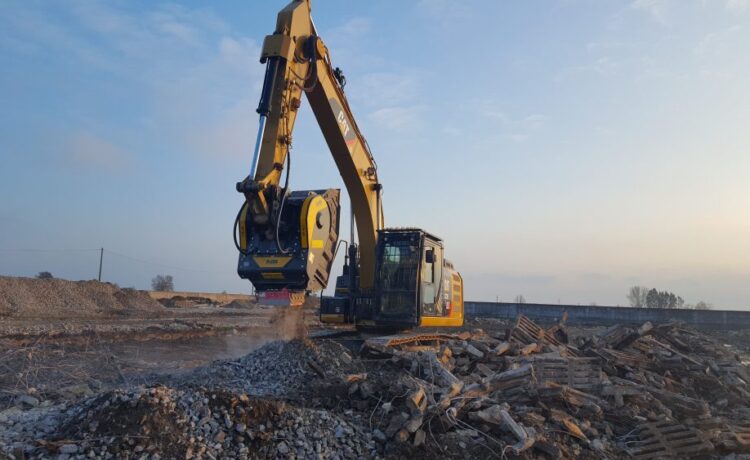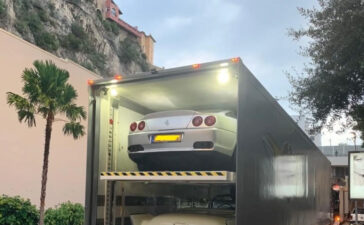Dealing with large construction equipment that is no longer in commission can be a daunting task. It’s tempting to just store it somewhere on the property and forget about it, but this will just delay the inevitable. Eventually, you’re going to have to dispose of the equipment to make space for new machinery. Let’s take a look at a few different ways you can dispose of the heavy equipment you no longer use.
1. Recycle or scrap
If your equipment is no longer in usable condition, the best option is to transport it to a recycling facility or a scrapyard. In these facilities, your unwanted machinery will be deconstructed and crushed, while usable parts and metals will be recovered and used to build new machines. This is an environmentally friendly alternative to dumping waste in landfills where it’s destined to rust. It’s also a good way to salvage a few dollars out of an old machine rather than simply dumping it in a giant proverbial bin.
A typical recycling centre will dispose of your heavy machinery in one of two ways. The first is to break it up mechanically and put it through a huge shredder. The second option is to dismantle it into smaller pieces and then send it for smelting. Some of the metals that make up your machinery are valuable, so recycling them means reusing a finite resource.
Recycling facilities accept all types of construction equipment and vehicles, so whatever the equipment is that you’ve decommissioned, it’s worth looking into this as an option.
2. Sell the equipment to a new buyer
Selling equipment yourself is a great idea, if it’s still in good condition and you want to avoid paying for a dealer. The piece of machinery you no longer want might be valuable to someone else, so it’s worth capitalising on that potential demand.
That isn’t to say that selling disused equipment isn’t without its challenges. Firstly, there is the added burden on your time outside of your regular job. Getting the equipment in shape for sale and then finding the right places to advertise it will take a little bit of leg work.
Getting the word out to the right people is the most important part if you want to sell your equipment directly. This can be done by joining different Facebook groups that sell construction equipment. Most regions have buy and sell groups that are specific to certain industries like construction and agriculture, and the best part is that you can post your listings quickly and for free.
3. Get in touch with a broker
Partnering with a broker is a good option when it comes to disposing of your old equipment. These knowledgeable professionals are committed to handling all parts of the transaction for you, so all you have to do is wait to get paid. Brokers can determine the value, find the right buyer and handle the final negotiations and payment process. You might even find a broker that you want to partner up with for future projects too.
Brokers earn a commission on the sale of your equipment, so it will cost you a cut of the final sale, but it’s in their best interest to get the best deal for you, so there is a mutual interest in the relationship. This option also allows you to get back to work and not have to worry about putting in the work to sell it yourself.
4. Trade it in for a new one
If you don’t have the time to sell your machine, or go through the process with a broker, trading your old excavator for a new Kubota excavator can be a good option. It’s a quick and easy way to lift the burden off your shoulders as the dealer will take care of all the logistics involved in the trade. All you have to do is negotiate with the dealer what the machine is worth and what a fair trade would be, and then you’re on your way.
It won’t be as profitable as selling the equipment privately, but you might decide your time is more valuable than any extra money you might make by selling it directly.
5. Put it to auction
Auctions are an excellent choice, especially if you have equipment that’s in high demand and that you want to get rid of quickly. This will require you to pay for the services of an auctioneer, but your machinery is pretty much guaranteed to sell if it’s in good working order. And while you’re selling your old equipment you might get to have a look at some new excavators for sale while you’re at it.
As an added bonus, auctioning your equipment will introduce you to prospective buyers who will most likely work in a similar field, creating new professional connections.
While it may seem like an unwelcome hassle, choosing the best way to dispose of your machine will be a rewarding process that you’ll wish you’d done sooner. Hopefully this list will have given you a good idea of which option is best for you.





